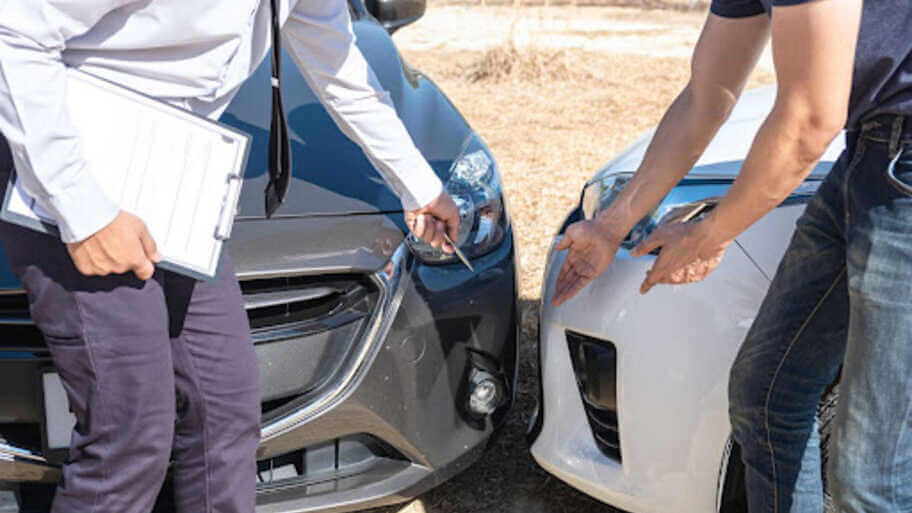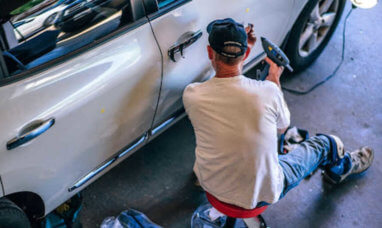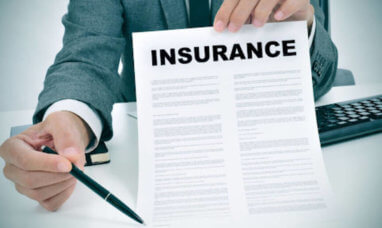No matter how cautious we are, accidents will happen. After an accident, there is almost always someone to blame in the eyes of the law and insurance companies.
If you or your family are responsible for accidental damage to someone else – be it property damage or personal injury – that person may be able to make a liability claim against you and your insurance. Depending on the accident, liability insurance claims can fall under your auto insurance, or your homeowners or renters insurance.
Liability insurance only covers damage caused to someone else, which will mean you are technically “at-fault”. It does not cover injury to your own family or damage to your own property, and it does not cover intentional injury or damage.
Blame in liability cases is not always clear. The result is that the blame of who is at fault can be challenged. If a person judges the payment insufficient or an insurer denies a liability claim, they can hire a lawyer and bring the matter to court.
Here are some common scenarios and who is likely to blame.
1. His Tree Falls on Her Roof
A nasty windstorm knocks a large tree in Tom’s yard onto his neighbor Nancy’s roof. Tom and Nancy agree that it really is a lot of damage, but disagree on whose insurance should pay. Nancy thinks that since it’s Tom’s tree, he’s at fault and his home insurance should pay for the damages.
Nancy’s home insurance would pay the damage, even if someone else owned the tree, because no one was negligent in this case.
There may be an exception if something was wrong with the tree, such as rot, and Tom knew about it but did nothing. In this case, Nancy would have to prove that Tom knew about the rot and was negligent in ignoring it, a tough case to make.
Be mindful of roof exclusions in homeowners insurance. When it comes to a roof leak, most insurance companies will approve a claim caused by a falling tree, branch or other object, hail or a windstorm, or excessive snow, sleet or ice. Vandalism is also a commonly covered peril.
Your home insurance policy may also include a list of exclusions. Negligent roof maintenance is one of the most common reasons for claim denials. The insurance company expects homeowners to perform routine maintenance to keep their roof in good condition. If the insurance company determines that you have not performed routine maintenance for an extended period, your claim may be denied.
Your roof insurance claim may also be denied if there is mold. Mold is often caused by homeowner negligence and lack of roof maintenance.
Another common exclusion you’ll likely find on your home insurance policy is normal wear and tear. Over time, it is inevitable that your roof will experience some deterioration. If the damage found by your insurance company is caused by normal wear and tear, your insurance claim may be denied.
Damage caused by birds, vermin, insects, and rodents may also not be covered by your home insurance.
2. Injured While Slipping on Ice
It’s been a cold and freezing winter. Jake is going out for a walk.
On the sidewalk in front of the nearby Thompsons’ house, Jake loses his footing on a patch of ice and fractures his wrist trying to break his fall. When he approaches the Thompsons about his fall, they say they did what they could, but they just couldn’t have stopped the ice from forming in that particular spot.
Who is at fault depends on where the accident took place. Some cities or counties have a legal duty to keep sidewalks in a safe condition, including snow and ice removal.
But in many places, the onus is on homeowners to keep the sidewalk clear and safe. If that’s the case in their neighborhood, Jake can file a claim against the Thompsons’ home insurance.
There’s not much homeowners can do to clear driveways, and Jake should know that one thing that happens in winter is ice forming on sidewalks. His claim could be reduced or denied if he was negligent in any way, knew there was ice, or if the Thompsons took reasonable steps to keep the driveway clear.
3. Fender Bender
Anna is driving home in heavy traffic when she is suddenly cut off by another driver. A second later, the driver slams on the brakes. As Anna doesn’t have time to stop, she rear-ends the car and damages the back.
Anna is likely responsible for the accident because she failed to maintain a safe driving distance. The other driver can make a claim against Anna’s car insurance to pay for the damage to his car.
In some states, blame can be shared if both drivers share fault. For example, if the other driver’s brake lights were off and Anna couldn’t tell she was stopping, she could be found partially at fault in some states.
For more information, check out this list of negligence and fault laws by state.
Does Homeowners Insurance Cover Accidental Death?
Home insurance will cover accidental death if someone came to your home and died, for example, by drowning in your swimming pool or tripping down your stairs.
It is important to have adequate limits on your liability coverage so that you are fully protected if an incident occurs.
Remember that your policy does not cover you or any family member who lives with you. Also, it does not cover incidents that are actually intentional in nature, such as someone being pushed down a flight of stairs.
How to File a Claim
If your property has been damaged or you’ve been injured and you think someone else is to blame, you should first talk to that person. Discuss what happened and ask questions about his insurance.
Ask for the name of his insurance company, the full name of the person holding the policy and his policy number. You can write a letter directly to the insurance company to let them know you are going to file a claim.
If you can’t get the name of the insurer or if the person responsible for the accident does not give it to you, send him a letter by certified mail advising him that you are requesting compensation for the incident. That person has to notify his insurer. If he doesn’t, he could lose his coverage.
Make sure to take photos of visible injuries or damage with a recognizable time stamp.
Expect a call from an insurance adjuster or investigator to determine if your injury or damage was caused by negligence. They will want to speak to you, the insured person and any witnesses. They will also ask to see any photos you have taken and medical records of your injury.
Contact your insurer immediately if someone wants to file a claim against your insurance. Let your insurer know what happened from your point of view and tell them to expect a claim.
Featured Image: Twenty20








